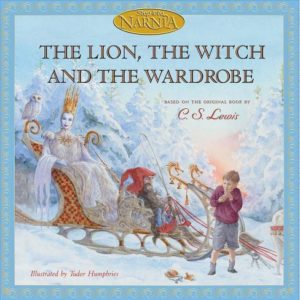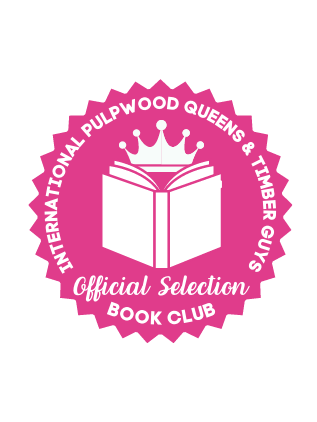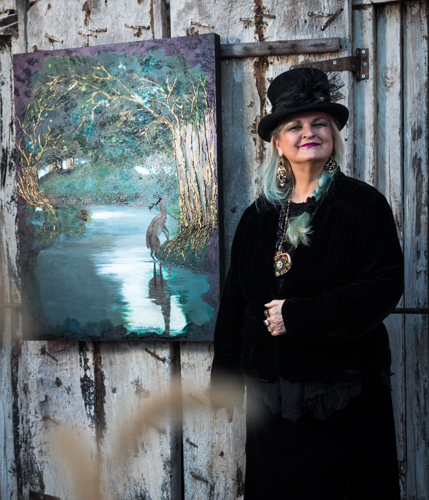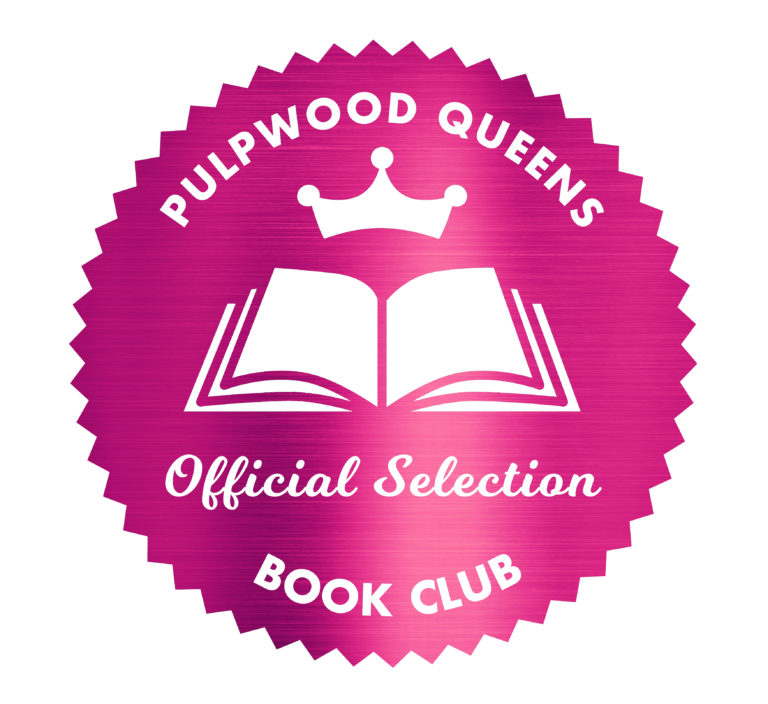 Starting the year off with a healthy reading list is always a wise thought, as all bibliophiles would agree. The right books can really make a difference to your mood, and perhaps even inspire you to embark on unexpected authorial journeys of your own. If you’ve got a book idea brewing somewhere in the back of your mind and you’re waiting for a reason to get cracking, I’ve got 10 books that might just be the kickstart you need. Among them are craft books, writing exercises, and memoirs; so whether you’re trying to plot your story, develop your character, or build a writing routine, there’s bound to be something for you.
Starting the year off with a healthy reading list is always a wise thought, as all bibliophiles would agree. The right books can really make a difference to your mood, and perhaps even inspire you to embark on unexpected authorial journeys of your own. If you’ve got a book idea brewing somewhere in the back of your mind and you’re waiting for a reason to get cracking, I’ve got 10 books that might just be the kickstart you need. Among them are craft books, writing exercises, and memoirs; so whether you’re trying to plot your story, develop your character, or build a writing routine, there’s bound to be something for you.
1. Bird by Bird by Anne Lamott
It’s no surprise if you’ve heard of this soulful little guide before, because it’s a classic. In Bird by Bird, Lamot discusses every aspect of book publishing you’d need to know, from writing that first draft to getting your manuscript to a publisher. But perhaps more precious than the information that she gives you (which you can probably Google nowadays), is the emotional support that she offers every step of the way. Through her charismatic prose, writing becomes an exciting adventure, both to discover the world you’re creating and to realise unexpected things about the world around you.
2. M Train by Patti Smith
A musician and a poet, Patti Smith might not be your immediate go-to when you think of writing gurus. And indeed, her book of memories was not meant to be a guide — rather, she aspired to write a book about nothing. That is, nothing but her musings; nothing but her poetry, daydreams, and reflection. It’s the book you should turn to if you want nothing more than to feel inspired and start writing.
3. Zen in the Art of Writing by Ray Bradbury
Ray Bradbury’s books need no introduction — they’ve been opening up the worlds of dystopian and science fiction to readers since the 1930s, when his first stories were published in pulp magazines. And yet, this lesser known volume, Zen in the Art of Writing, is possibly one of the most interesting books he’s ever written — that is, if you’re reading it as a fellow writer. It gives you insight to his creative mind, the passion he has for storytelling, and even some of his practical tips, like making a list of nouns that stand out to you. What use is there to list like that, you ask? Well, you’ll have to read the book to find out.
4. The Writer’s Journey by Christopher Vogler
There’s a bit of a controversy in opinion when it comes to The Writer’s Journey — it’s sometimes seen as a watered down version of Joseph Campbell’s classic work on mythical story structure, The Hero with a Thousand Faces. But make no mistake, Vogler’s book, while inspired by Campbell, carries its own weight. Breaking away from the academic style, Vogler puts theory into practice, showing you the very best of books and screenwriting . It’s an eye-opening read and may well be the spark you need to turn that idea of yours into a full-fledged tale.
5. The War of Art by Steven Pressfield
To start writing — and to really write, until you reach that goal of a first draft — is no easy task. But before you lose faith and decide that you’re not really an author, let Steven Pressfield convince you otherwise. In The War of Art, Pressfield comes face to face with the challenges that creatives have to overcome on their journeys. If nothing else, just learning that there are other authors out there who’ve been through what you’re going through and emerged victorious can be a comforting boost.
6. Eats, Shoots, & Leaves by Lynne Truss
The title Eats, Shoots, & Leaves sounds like the motto of a peculiar mobster; though, as the book cover would imply, by changing some of the punctuation, it reads as the diet of the adorable panda bear. In our text-laden world, punctuation often falls into the cracks where the light can’t reach, and Truss’s book shows you just how damaging such blunders can be with incredible hilarity. It’s a technical book, but an absolute joy to read. With the knowledge that it offers, you’ll have that bit of extra confidence to write just about anything.
7. The Daily Writer by Fred White
If you already have a clear direction for your book and are looking for something a little more structured, then The Daily Writer might just be what you’re after. With 366 meditations, exercises, and writing tips to accompany them, you should have enough inspiration to keep you going for a little over a year! A lot of these exercises can help you flesh out your ideas, hone your skills, and ultimately, create a daily writing habit that can get your book on the shelves. Fred White’s extensive exercise book is designed to cater to all writers; whether you’re a beginner or a seasoned pro suffering from a bout of writer’s block, you’ll find this is the gift that just keeps giving.
8. The Clothing of Books by Jhumpa Lahiri
I know it’s a little premature to think about how your cover’s going to look when you don’t have a book yet, but taking a step back and seeing the bigger picture can provide the inspiration you need. As with every other part of a book’s design, the cover can play an important role in the reader’s experience. The Clothing of Books reminds you that when done right, the jacket is as much a part of your creation as the text itself, so to think about your cover is to conjure up a visual representation of your book . And perhaps that’s just the angle that you need to start putting pen to paper.
9. Gmorning, Gnight! by Lin-Manuel Miranda
This book isn’t about writing at all. In fact, it’s a collection of energetic, optimistic, and usually Tweet-length verses that go in pairs — one for the start of your day and one for the end. They’re quick to read, encouraging, and reassure you that days don’t have to end on a sour note. If you love Hamilton as much as I do (and let’s be honest, who doesn’t?), then you’ll know that there’s no questioning Lin-Manuel Miranda’s skill with a quill. Not only would the book be great for emboldening yourself, it’ll also serve as some literary inspiration!
10. The Lion, the Witch and the Wardrobe by C. S. Lewis
To cap our list off is a beloved classic: the book that introduced generations of readers to the realm of Narnia. Unlike all the other titles on this list, this one’s a novel. But similarly to all the other books, it can teach you a lot about how to write. Sometimes it really only takes a great story to get the cogs of your imagination whirring. So pick up The Lion, the Witch and the Wardrobe and allow yourself into this magical world. Notice how it’s being built around you with every turn of phrase — there’s hardly a better way to feel and appreciate the power of words!
Writing a book is not simple, but it’s not impossible either. As this list might have demonstrated, there are plenty of resources out there to help, guide, and inspire you. Hopefully you’ve found some new titles for your TBR — and who knows, maybe one day we’ll get to see your book sitting on the shelves!
—
Thao Nguyen is a writer at Reedsy, a platform that connects authors and publishers with the world’s best editors, designers, and marketers. She enjoys writing non-fiction, especially the historical kind, and is delighted by the prospects that self-publishing provides for aspiring authors nowadays.
- Welcome to the December 2024 Cover Issue of the Pulpwood Newsletter! - December 1, 2024
- New Author Members – November 2024 - December 1, 2024
- Welcome to the November 2024 Cover Issue of the Pulpwood Newsletter! - November 2, 2024
- New Author Members – October 2024 - October 31, 2024
- Welcome to the October 2024 Cover Issue of the Pulpwood Newsletter! - October 1, 2024
- Welcome to the September 2024 Cover Issue of the Pulpwood Newsletter! - September 1, 2024
- New Author Members – August 2024 - August 19, 2024
- Welcome to the August 2024 Cover Issue of the Pulpwood Newsletter! - August 5, 2024
- New Author Members – July 2024 - July 30, 2024
- Welcome to the July 2024 Cover Issue of the Pulpwood Newsletter! - July 1, 2024




